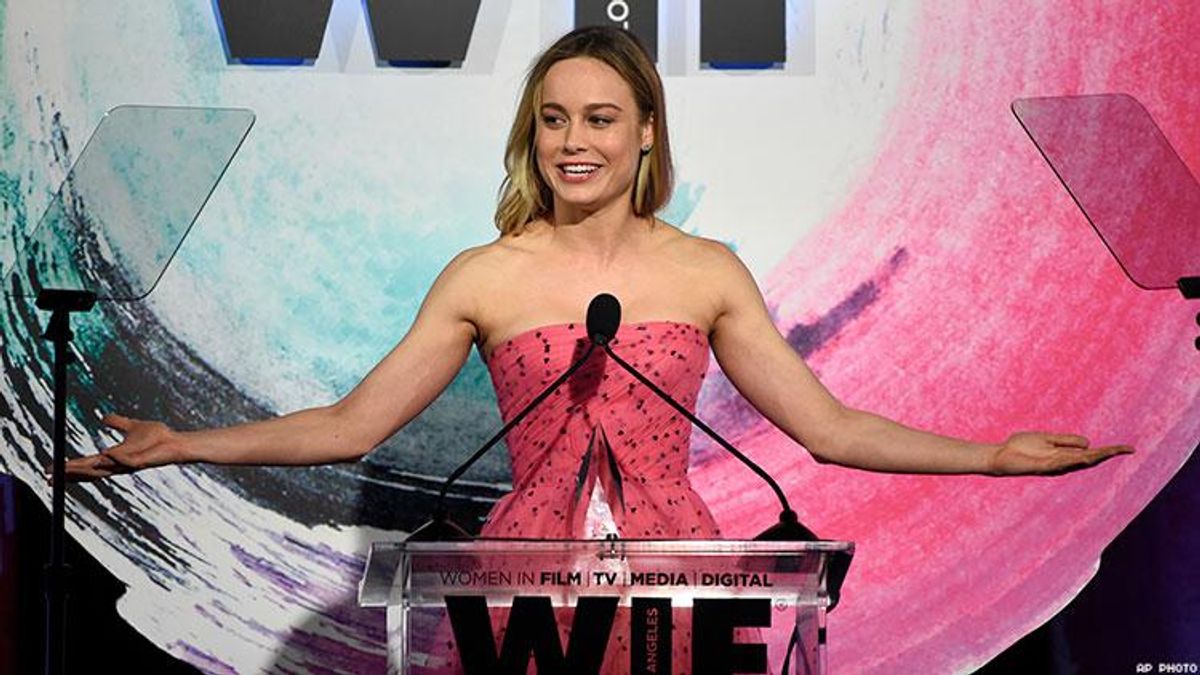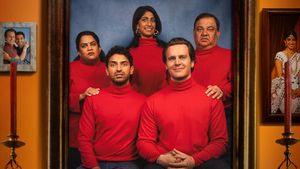Nearly eight months before a New York Times expose brought down Harvey Weinstein and sparked a national discussion about sexual harassment and abuse, Oscar winner Brie Larson stood on the Academy Awards stage and pointedly refused to applaud accused sexual harasser Casey Affleck even as it was her duty as a presenter to call his name when he won Best Actor for Manchester by the Sea.
Her refusal went viral, and a year later, Affleck did not return to the Oscars to hand out the award to the next Best Actress as tradition has dictated. The #MeToo movement surely had something to do with his steering clear of the event, but also, Larson's protest was hard to forget. Now, while accepting an award, the actress who is playing Captain Marvel in the upcoming films in the Marvel universe, has taken aim at the overwhelming number of white male critics who dictate what films people end up seeing.
While accepting the Crystal Award for Excellence in Film at the Women in Film Crystal + Lucy Awards in Los Angeles, Larson called for more diversity in film criticism, according to Deadline. The star of Room then fired off alarming statistics that the University of Southern California's Annenberg Inclusion Initiative recently found, which showed that in 2017, 63.9 percent of 19,559 reviews written on Rotten Tomatoes were from white men, as opposed to 18.1 percent that women wrote, 13.8 percent written by underrepresented men, and 4.1 percent written by underrepresented women.
"I don't need a 40-year-old white dude to tell me what didn't work about A Wrinkle in Time. It wasn't made for him! I want to know what it meant to women of color, biracial women, to teen women of color," Larson said to applause. "Am I saying I hate white dudes? No, I am not. What I am saying is if you make a movie that is a love letter to women of color, there is an insanely low chance a woman of color will have a chance to see your movie and review your movie."
But Larson did more than call out the lack of diversity in film criticism. She announced that film festivals including Sundance and the Toronto International Film Festival would begin allotting 20 percent of their passes to critics from underrepresented populations.
For its study on film criticism and just who does most of the talking, USC's Annenberg Inclusion Initiative studied Rotten Tomatoes's reviews of the 100 top-grossing films of last year. The study reported that not only did white men dominate the site's general reviews section but that there's an even wider discrepancy among the exclusive "top critics" reviews. The study found:
"Of the 3,359 reviews by top critics, 76 percent were written by males and 24 percent by females. Underrepresented top critics wrote 11.2 percent of the reviews compared to 88.8 percent by white top critics. When gender and underrepresented status were examined simultaneously, top film reviews written by white males outnumbered those by underrepresented females by nearly 27 to 1, as reviews by women of color amounted to only 2.5 percent of those by top critics while white males wrote 67.3 percent. White females wrote 21.5 percent and underrepresented male critics 8.7 percent of top reviews."
As part of the solution to solving the issues with film criticism, Larson implored publicists to add diversity to the press lines and junkets.
"Female and underrepresented critics can't review what they don't see," Larson said. "Many are denied accreditation or access to press screenings. Please make sure that these invites and credentials find their way to more underrepresented journalists and critics, many of whom are freelancers."



















































































